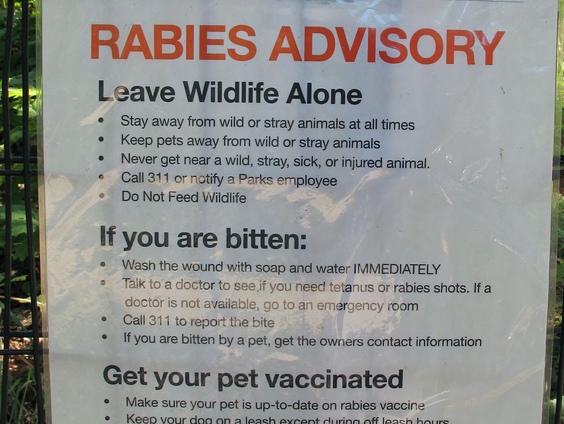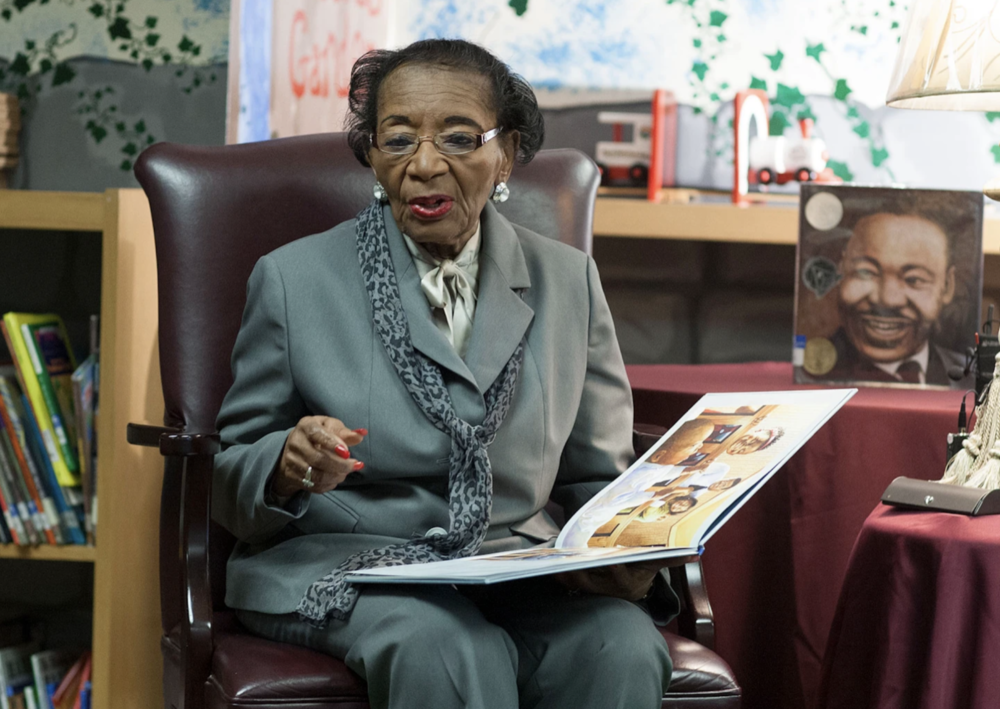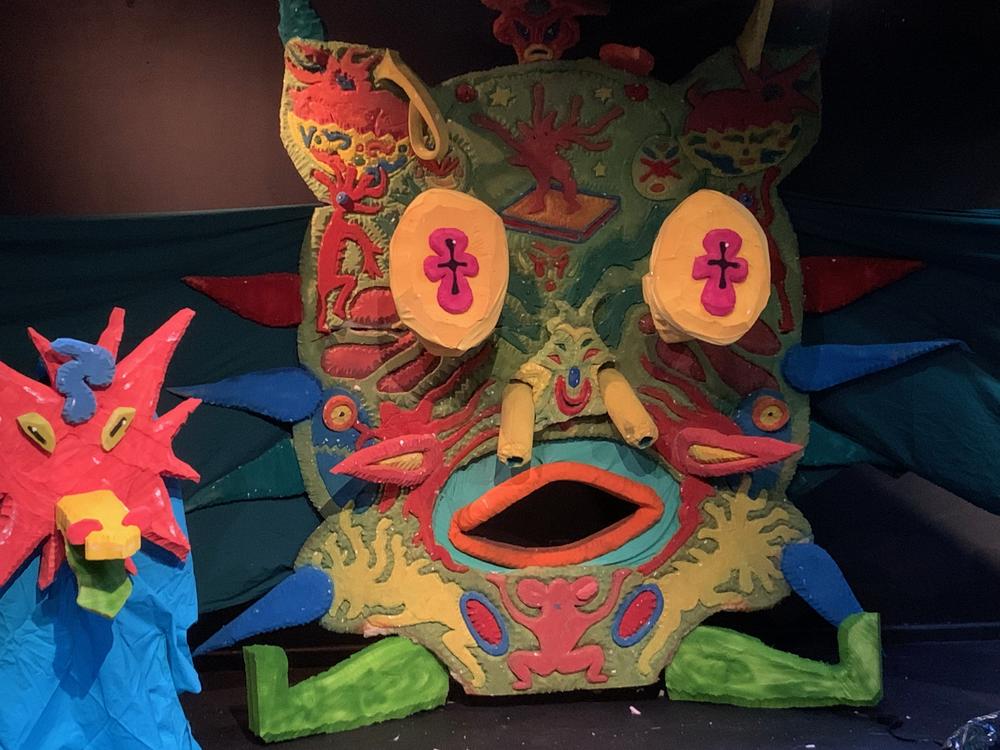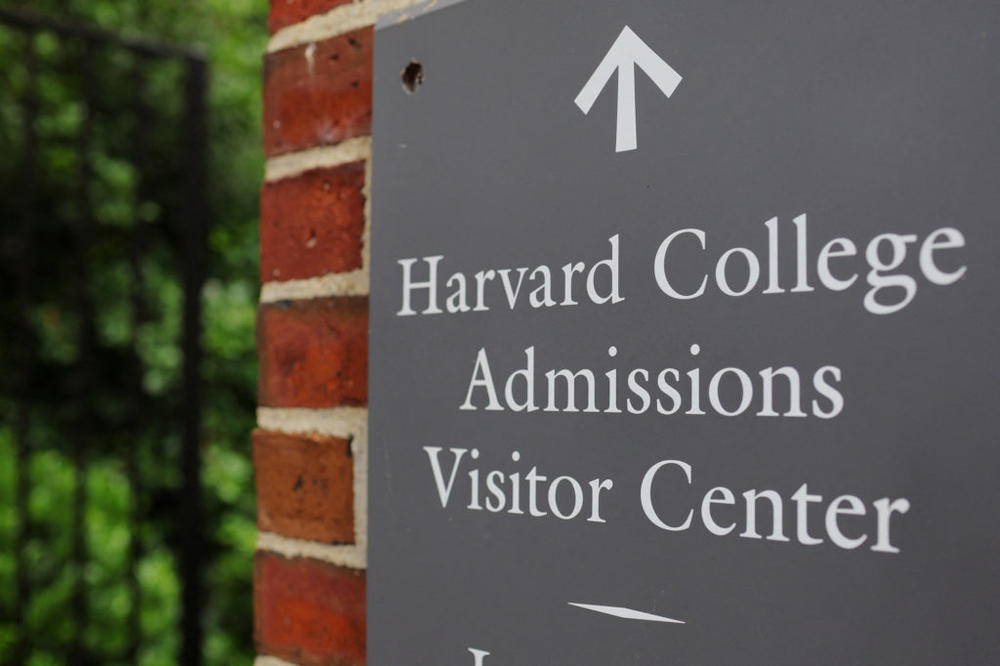
Section Branding
Header Content
Georgia Today: Trump lawyers push back; Savannah nightlife; Georgia enrollment diversity affected
Primary Content
LISTEN: On the Friday, July 14 edition of Georgia Today: Former President Trump's lawyers push back against indictment recommendations; Savannah officials look at ways to control the city's rowdy nightlife; and how has the ending of affirmative action affected enrollment diversity in the state?

Peter Biello: Welcome to the Georgia Today podcast from GPB News. Today is Friday, July 14. I'm Peter Biello. On today's episode, former President Trump's lawyers push back against indictment recommendations. Savannah officials look at ways to control the city's rowdy nightlife. And how has the ending of affirmative action affected enrollment diversity in the state? These stories and more are coming up on this edition of Georgia Today.
Story 1:
Peter Biello: Lawyers for former President Donald Trump are asking Georgia's highest court to quash a special purpose grand jury's report that recommended indictments in an investigation into efforts to overturn his 2020 election loss in Georgia. In petitions filed today, the lawyers also asked the court to bar Fulton County District Attorney Fani Willis from prosecuting him. The lawyers acknowledged their request is unusual, but say it's necessary because of the timeline. Willis has indicated the indictments could come within days or weeks.

Story 2:
Peter Biello: State health officials are urging Georgians to protect themselves and their pets after a headline-grabbing attack by a rabid beaver in North Georgia. The State Department of Public Health says rabies is endemic to Georgia wildlife, but reports go up in the summer when people go outside. GPB's Sofi Gratas has more.
Sofi Gratas: Earlier this week, a 50-pound beaver attacked someone at Lake Lanier. It later tested positive for rabies. The last time a rabid beaver was reported in Georgia was 2018. Most often, rabies affects raccoons, skunks and foxes that bite other animals or people, says DPH epidemiologist and veterinarian Julie Gabel.
Julie Gabel: And again, this is exactly the reason why people need to vaccinate their pets and stay away from wildlife. That's the best way they can protect themselves.
Sofi Gratas: Gabel says on average, they test up to 2,000 animals a year for rabies and see about 200 positive cases. While the disease is mostly deadly for an infected animal, humans can get a series of shots to treat a bite or scratch. For GPB News. I'm Sofi Gratas.

Story 3:
Peter Biello: Georgians are paying their respects today to Christine King Farris, the late sister of Dr. Martin Luther King Jr. Farris is lying in state at the Georgia Capitol until 7:00 this evening. Gov. Brian Kemp was among those who delivered brief remarks at the Capitol tribute just after noon.
Story 4:
Peter Biello: The city of Columbus will pay $600,000 to settle claims that a Black former police chief racially discriminated against two white officers. City officials pushed the chief, Freddie Blackmon, into retirement earlier this year. The officers alleged Blackmon illegally passed them over for promotions in favor of people with less experience and worse disciplinary records.
Story 5:
Peter Biello: Parts of the Chattahoochee River will remain closed going into a third weekend following a sewage spill in metro Atlanta. A National Park Service official said today the section between Chattahoochee Nature Center and Powers Island will remain off limits. Earlier this week, a downstream section was reopened after tests showed improved water quality.
Story 6:
Peter Biello: Savannah officials are looking at ways to calm the city's sometimes rowdy nightlife, as GPB's Benjamin Payne reports, a consultant released recommendations yesterday aimed at improving the after dark experience for residents and visitors.
Benjamin Payne: The Responsible Hospitality Institute studied Savannah's nightlife scene over a six-month period last year. Now the California based nonprofit is out with a detailed list of ideas for improvement. Here are some of them: a special nightlife police unit to patrol downtown after dark; an accreditation program for hospitality worker training on dealing with unruly patrons and preventing underage drinking; stronger enforcement of Airbnb violations like disorderly parties that keep residents awake at night, and designated zones for picking up Uber and Lyft rides at closing time. The consulting firm charged Savannah $80,000 for the nightlife study. The city could choose to adopt any or all of the recommendations, but it's not obligated to do so. For GPB News, I'm Benjamin Payne in Savannah.

Story 7:
Peter Biello: Unique and colorful puppets are taking center stage at a new exhibit in Atlanta. GPB's Ambria Burton has more on the work of two brothers from Puerto Rico.
Ambria Burton: The Center for Puppetry Arts Puppetry Now Initiative is back for a second year in Atlanta. The exhibit spotlights contemporary artists and puppeteers of color in a field of art that has not been historically diverse. This year's featured artists are Puerto Rican brothers Pablo and Efrain Del Hierro showcase in their collection Poncili Creación in the center's Special exhibit Gallery. The identical twins are excited to show audiences how their unique creations constructed in foam differ in the art of puppetry.
Pablo Del Hierro: When you see the show is just a representation of what we think that makes us stand out in this craft and what we feel about this learning that we have done that we want to share with people.
Ambria Burton: Visitors can see the exhibit through the end of October. For GPB News, I'm Ambria Burton in Atlanta.
Story 8:
Peter Biello: Georgia's Department of Public Safety is adding a dozen new K-9 officers. The dogs and their handlers got badges yesterday at the governor's mansion in Atlanta. First lady Marty Kemp provided dog treats. There has been a recent increase in K-9s for state police agencies. In 2021, the Department of Public Safety had 18 dogs and that number is projected to nearly triple by next year.
Story 9:
Peter Biello: Two weeks ago, the U.S. Supreme Court struck down affirmative action in college enrollment. But Georgia's public colleges and universities haven't used race as a determine in admissions for many years. That doesn't mean they aren't promoting diversity by other means. GPB's Orlando Montoya visited Georgia State University to talk about enrollment diversity with Timothy Renick, who leads GSU's National Institute for Student Success.
Orlando Montoya: What was your reaction to the court's ruling?
Timothy Renick: Well, I think what it does is intensify the need for the work of this institute that I’m currently directing. What the institute works on doing is helping, especially those schools that have below average graduation rates, improve their graduation rates and reduce equity gaps between success rates for different populations of students. And what the Supreme Court ruling will, in effect, do is displace students from more elite institutions to minority-serving institutions, four-year publics, community colleges, HBCUs and so forth — institutions that historically have, on average, had lower graduation rates. So, the best and most practical response we can deliver is, let’s help those institutions improve so that the students will not suffer.
Orlando Montoya: And so what advice would you give to those colleges and universities that have been using race as one of many factors in college admissions?
Timothy Renick: Well, one of the most potent things we did at Georgia State to improve our diversity and mind you, Georgia State in the 1960s was still segregated. It was still a whites-only campus. And now we’re one of the largest institutions enrolling Black students in the country. For six years in a row, we’ve graduated more Black students than any other college or university in the United States. So, you can become diverse even in a context of no affirmative action. Our most potent tool over the last 15 years has been our success. The reality is that if you’re a Black student, a Hispanic student, a white student or low-income or middle upper-income, your chances of graduating from Georgia State are strong but they’re equal. They are equitable. So, our Black, Hispanic and low-income students have all graduated at or above the rate of the student body for the last seven years from Georgia State. Word gets around.
Orlando Montoya: Do you give preference to students with lower socioeconomic status and how does that impact who gets selected?
Timothy Renick: Yeah, we do not. As [with] all of the schools in the University System of Georgia, our admissions is blind with regard to race and blind with regard to economic background. We do not weigh those considerations. But again, our student body is one of the largest with low-income students in the United States. About 60% of our students are low-income. So what we want to do is create institutions that can succeed with students from diverse backgrounds rather than working on maneuvering the front end of the process so that different types of students enter. What is critical across all the sectors in post-secondary is that we find ways to succeed with students. Most of these students are not at the institutions currently that are going to be impacted by the Supreme Court ruling on affirmative action. We need to be better at succeeding with students where they are.

Orlando Montoya: From your experience, can you talk about some of the specific barriers students of color face when trying to stay in school?
Timothy Renick: What has been really clear to me over the last 15 or so years, I transitioned from the classroom. I was a full-time professor here at Georgia State. What was disturbing is, I would see students who were equally qualified to succeed in life, some of whom would go on to do wonderful things. We’ve sent students off to graduate school at Oxford and Cambridge and Harvard. And then equally qualified students wouldn’t even graduate. And what I saw is, too often, the difference between those who succeeded and those who did not was the big bureaucracy that would swallow them up. Simple things like not getting a payment in on time or not registering for a course in a timely fashion or a hold on an account would turn out to be the straw that would lead to a student to drop out. So what we’ve really concentrated at Georgia State is putting the mirror on ourselves and saying: "How are we part of the problem?" It’s not because the preparation of our students before they arrive is unimportant. But we don’t have a lot of control over the preparation of the students before they arrive on campus. What we do have a lot of control over is how we admit students, how we advise them, how we register them for classes, how we package them for financial aid. It’s complicated to do college, right? Lots of administrative bureaucracy, financial aid forms and deadlines and so forth. And students from multi-generation college families with brothers and sisters and parents who’ve gone to college have this invisible support system, parents and uncles and aunts and so forth, who are stepping in and helping them. If you’re a low-income, first-generation student — and more of our non-white students tend to fall in those categories — you often don’t have that kind of help. So by providing that support, we’ve been able to truly transform the outcomes for our students.
Orlando Montoya: Speaking of outside support, what needs to be done outside of colleges and universities in society at large to help you to recruit and retain a diverse student body?
Timothy Renick: I think we need to work on changing the national dialogue about the importance of education. Clearly there has been a narrative over the last few years that has suggested to many that college is not worth it. The reality is that, while college can be expensive, we can lower those costs. And one thing that is part of the Georgia State story that we haven’t mentioned is that the cost of education at Georgia State and the average loan debt has gone down remarkably. It’s gone down every year since 2016 — in part because we are getting students through their programs more efficiently, so they’re taking less time to degree and collecting less debt in the process. So, one, we can do better in getting down the costs of higher education. But more than that, we have to get people to realize that higher education is one of the few reliable sources of true social mobility. It also impacts quality of life. If you hold a bachelor’s degree, compared to somebody who has only a high school diploma, you have better health care, have access to better health care, you have longer life expectancy, your children have better educational opportunities. The average bachelor’s student over their lifetime, according to the Pew Research Center, will earn about $1 million more than will the high school diploma holder.
Orlando Montoya: Given the Supreme Court's decision, do you anticipate having to make any changes to how you do things?
Timothy Renick: I think not only the Supreme Court’s decision on affirmative action but the blocking of the Biden proposal to forgive federal student loan debt indicate that it’s more important that we correct certain things that are going on in higher education. If the courts are not going to help this process, then what do we need to do? Really, the response that higher education needs to make, at this point, is to do our job better. Turn graduation rates. Georgia State’s graduation rate was under a third of our students. Now, close to 60% are graduating on time and another 15% or so graduate a year or so after that. That’s transformative, right? That makes a huge difference when it comes to the equation of: "Is college worth it for me" or is college a public good for the state of Georgia? We’ve got to replicate that over and over again. And that’s precisely the work of the National Institute for Student Success, as we’re working with other institutions, including a number in the state of Georgia, to help them understand that by using these approaches — big data, AI, predictive analytics and so forth — not to profit from individuals, but to actually increase their chances of succeeding, we have the chance to really transform college outcomes.
Peter Biello: That was GPB's Orlando Montoya speaking with Timothy Renick, who leads GSU's National Institute for Student Success.
Story 10:
Peter Biello: In sports, the Braves host the Chicago White Sox tonight for the first of a three-game series. Atlanta is aiming to extend a 10-game home winning streak. Atlanta is 60 and 29 overall and 30 and 5 in home games. The matchup today is the first meeting this season between the two teams.
And that is it for this edition of Georgia Today. Thank you so much for tuning in this week. If you want to learn more about any of these stories, visit GPB.org/news, and remember to subscribe to this podcast. We'll be back with you and your podcast feed on Monday. If you have feedback or a story idea, we would love to hear from you. Email us. The address is GeorgiaToday@GPB.org. I'm Peter Biello. Thanks again for listening. We'll see you next week.
---
For more on these stories and more, go to GPB.org/news.



